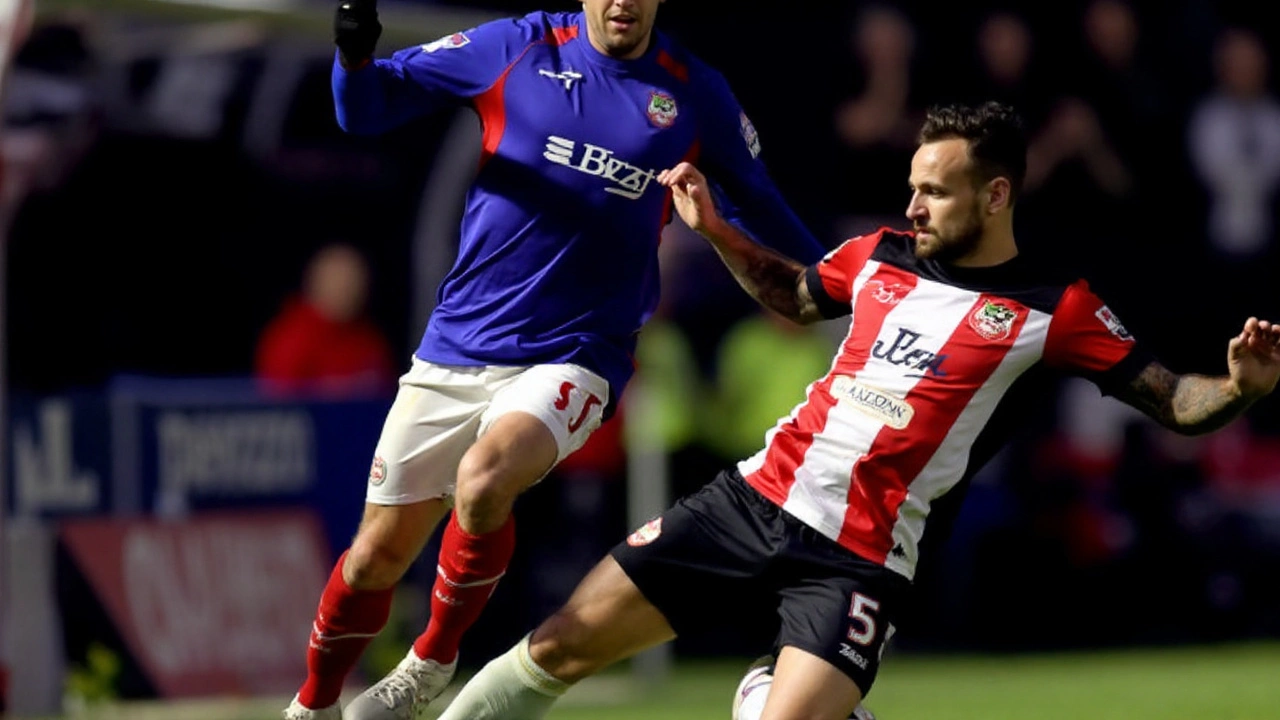Hampshire rivals
When exploring Hampshire rivals, the competitive match‑ups between clubs, schools or organizations that are based in Hampshire, England. Also known as Hampshire matchups, it brings together local pride, history and fan passion. The same spirit fuels Motorsports, high‑speed competitions like MotoGP and Formula racing, fuels Football, league and cup games that pit neighbouring towns against each other, shapes College athletics, team‑based contests such as the Big Sky Presidents’ Cup and even drives Political controversy, debates that split parties and communities. These arenas intersect: a heated football derby can spark a political debate, while a motorsport event may draw local university fans. Hampshire rivals therefore embody a mix of sport, scholarship and civic dialogue.
One clear semantic link is that Hampshire rivals encompasses local football derbies, meaning clubs from Portsmouth, Southampton and other nearby towns often face off in fierce matches. This rivalry isn’t just about the score; it’s about identity, ticket sales and community bragging rights. Another link is that motorsports requires high‑speed skill and engineering expertise, which attracts university engineering teams that also compete in college athletics. When a university’s racing squad wins a regional cup, the victory fuels campus pride and can become a new talking point in local political corridors. In short, sports performance can influence political narratives, and political decisions can affect how resources flow to these teams.
Take the example of the Big Sky Presidents’ Cup highlighted in the Idaho Vandals story. Though the team is far from Hampshire, the structure mirrors how college athletics in the UK create rivalries – scholarships, academic performance metrics, and regional bragging rights all play a part. Meanwhile, a MotoGP safety discussion shows how motorsports can be more dangerous than Formula 1, raising questions about regulation that politicians must address. Both examples illustrate that rivalry isn’t confined to a single sport; it spreads across disciplines, creating a web of competition and cooperation.
Political controversy also weaves into the fabric of these rivalries. The Labour MPs’ reaction to Diane Abbott’s situation demonstrates how internal party disputes become public rivalries, shaping voter perception and media coverage. Similarly, a heated football match can become a flashpoint for broader social debates, especially when club decisions intersect with local governance. These scenarios prove that rivalry can be a catalyst for change, pushing organizations to improve safety standards, performance strategies, or community outreach.
From a practical standpoint, anyone interested in Hampshire rivals should know three things: first, identify the core entities – football clubs, university teams, and motorsport teams – because each brings its own schedule, fan base and media coverage. Second, track the overlap points, such as shared venues or joint sponsorships, which often signal deeper competitive ties. Third, stay aware of the political backdrop, since council decisions on stadium funding or road closures can shift the balance of power. By keeping an eye on these attributes, readers can better understand the dynamics that shape each rivalry’s storyline.
Below you’ll find a curated mix of stories that dive into these themes – from a shocking football finish to a motorsport safety debate, from college athletic triumphs to political controversy. Each article adds a layer to the picture of how Hampshire rivals play out across different arenas, giving you a well‑rounded view before you explore the individual posts.
After more than a decade apart, Southampton and Portsmouth met again in the Championship on September 14, 2025, at St. Mary's. The South Coast Derby ended 0-0 in front of 30,000-plus fans, reviving one of England's closest rivalries. The clubs, only 19 miles apart, have rarely shared a division and have met just 71 times in top competitions since 1899.
